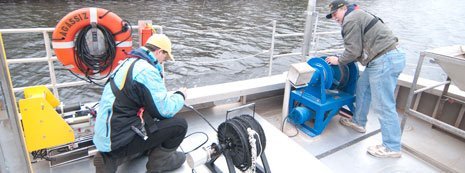Document Type
Article
Publication Date
4-8-2019
Abstract
The warm mix asphalt was fabricated with different moisture contents (0%, 1%, 2%, and 3%) of limestone aggregates using the Superpave gyratory compactor. The moisture susceptibility of asphalt mixtures with an organic wax additive RH was studied. The samples were compacted and tested using the modified Lottman test AASHTO T283, and the X-ray computed tomography technology was used to capture the internal structure images before and after the freeze-thaw cycles. The test results show that the air voids were distributed in the size range of 0–5 mm3 and 5–10 mm3. The number of air voids decreased with the increase of air void size and increased after freeze-thaw cycles. The air void content can be influenced by the residual moisture in aggregates. The higher the moisture content of aggregates is, the larger the air void content is. So, the air void content is likely to be sensitive to moisture damage. The increase ratio of the air void and moisture content of aggregates had good correlation with the indirect tensile strength and tensile strength ratio of the samples. The indirect tensile strength and tensile strength ratio of the samples decreased linearly, and the samples were sensitive to the moisture damage with the increases of increase ratio of the air void/moisture content in aggregates.
Publication Title
Advances in Civil Engineering
Creative Commons License

This work is licensed under a Creative Commons Attribution 4.0 International License.
Recommended Citation
Ji, J.,
Yuan, Z.,
Suo, Z.,
Xu, Y.,
Li, P.,
&
You, Z.
(2019).
Moisture susceptibility of warm mix asphalt (WMA) with an organic wax additive based on X-ray computed tomography (CT) technology.
Advances in Civil Engineering,
2019.
http://doi.org/10.1155/2019/7101982
Retrieved from: https://digitalcommons.mtu.edu/cee-fp/94
Version
Publisher's PDF


Publisher's Statement
Copyright © 2019 Jie Ji et al. Article deposited here in compliance with publisher policy. Publisher's version of record: https://doi.org/10.1155/2019/7101982